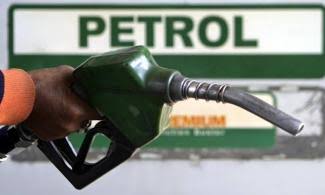Oil
Fuel Importation: PENGASSAN tips PHRC for TAM

By Kunle Kalejaye
The Petroleum and Natural Gas Senior Staff Association, PENGASSAN has tipped Port Harcourt Refining Company, PHRC for complete Turn Around Maintenance, TAM as it is key to the reduction of refined products importation into Nigeria.
 PENGASSAN said that PHRC is also key to increasing and improving local refining capacity in the country; and conserving the nation’s foreign reserves and enhancing the naira value.
PENGASSAN said that PHRC is also key to increasing and improving local refining capacity in the country; and conserving the nation’s foreign reserves and enhancing the naira value.
Commenting on the importance of the refinery and why it needs urgent TAM, PENGASSAN Rivers State chairman, Comrade Fidelis Ighodaye said PHRC is made up of two refineries.
“The old refinery commissioned in 1965 with current nameplate capacity of 60,000 barrels per stream day (bpsd) and the new refinery commissioned in 1989 with an installed capacity of 150,000 bpsd.
“This brings the combined crude processing capacity of the Port Harcourt Refinery to 210,000 bpsd. It has five process areas, with the new refinery made up of Areas 1 to 4, while the old refinery is Area 5.
“PHRC produces varieties of products including Liquefied Petroleum Gas (LPG), Premium Motor Spirit (PMS), Kerosene (aviation and domestic), Automotive Gas Oil (AGO – diesel), Low Pour Fuel Oil (LPFO) and High Pour Fuel Oil (HPFO), unleaded gasoline produced by PHRC meets international standard,” Ighodaye said.
Regrettably, Ighodaye noted that the two refineries in Port Harcourt have not been functioning at optimal capacity due to some challenges, which made Nigeria not to have derived full benefits of the hydrocarbon resources.
Some of these challenges listed by PENGASSAN include refusal by the government to carry out Turn Around Maintenance (TAM) on the refineries as at when due.
Expressing his opinion on the TAM on refineries in the country, the PENGASSAN National Public Relations Officer, Comrade Emmanuel Ojugbana, said that Nigeria’s quest to turn the tide of import-driven petroleum products and achieve self-sufficiency in local refining of petroleum products will be a forlorn hope if the refineries are in moribund state.
“The Refineries have severally suffered from irregular Turn around maintenance. While TAM is required once in every 18 months, the refineries have been without TAM for almost two decades and this has caused serious problem for their operations,” he stated.
It will be recalled that the government reached an agreement with the union on 7th January, 2014 to commenced TAM on the PHRC but till date the process is yet to commence.
Thereafter the government changed its tactics that instead of carrying out TAM on the PHRC plants, it would rather rehabilitate the plants to enable it function at minimal capacity. Since the government reached decision, some quantum of money was released for the rehabilitation to be performed by the employees of PHRC.
Though PENGASSAN considered this as a betray of confidence on the part of the government, the union however, promised to make use of the advantage offered by the rehabilitation to prove to the world that the refineries was not a total waste and a drain pipe on the nation’s purse as earlier claimed by the government.
Welcoming the decision, the union said in a statement “Since the government has decided not to carry out TAM on the PHRC, we have also shifted our ground to welcome the rehabilitation as this will enable us prove to the world, especially Nigerians that the refineries are not drain pipe on the nation’s purse as those who want it sold want the people to believe.
“PHRC has proved that it can be operated effectively and efficiently by posting a net profit of N11.2 billion for last December, representing N8.2 billion or 250 per cent above the N3.2 billion posted by the company in preceding November 2014. This was attributed to the improved financial performance for the phased rehabilitation programme, which was done by the workers.
“Alongside the other two refineries in Warri and Kaduna, approval was given for an agreed quantum of fund to be injected monthly over a period of one year for PHRC upgrade and rehabilitation.”
PENGASSAN, however, said for the refineries to be operated at profit and delivered its benefits to Nigerians, government should be apt and prompt to the release of fund as a panacea to alleviate the drawbacks occasioned by the lack of TAM, adding, “there are competent workers in the company who can handle the upgrade and rehabilitation and in fact collaborate with the local contractors that can match the TAM.”
On challenges of crude supply to the refineries, the union added that PHRC plant is poised not only to produce but also to add the needed value to the crude oil and flood the market with refined products, adding that the adverse effect of rationing or not feeding the plant with crude oil is that the plant remains idle for long.
“When the plant is idle for too long, this breeds residual faults and problems whenever there is an attempt to start up, since the design of a refinery is better when it is continuously operated.
“There was a time when we challenge the government and even issue a strike threat if crude is not regularly supply to the refineries but this was not done. We are again demanding adequate and regular supply of crude oil to the four refineries, especially the PHRC where it could be better refined to a higher value considering the give away price of exporting crude occasioned by the plunge in global oil prices.
“We are also challenging the government to grant the company’s management autonomy for effective accountability while sustaining the rehabilitation process already initiated. If the company fails to pay back the funding (if granted financial autonomy) and refuse to make commensurate returns to the NNPC within one year, the government is free to apply appropriate sanctions,” the union stated.
Unlike the other two refineries in Warri and Kaduna that have commercial department, PENGASSAN stressed that PHRC lacks such department to enable it reposition and effectively interface with its existing and potential customers as well as expand its frontiers in the quest for profitable and sustainable operations.
The workers, therefore, clamoured for establishment of a commercial department to complement the decision of the management to off-take its deregulated products to alleviate the problem of haulage which is confronting the company due to excess production whenever crude is supply.
“Lack of autonomy is another major challenge confronting the company. The board and management of the company and other subsidiaries of the NNPC are tied to the apron of the national oil company.
“The workers’ union argued that decision making and financial autonomy need to be granted to the board of management so as to facilitate effective and efficient operations of the refineries.
“The issue of security of oil and gas installations, especially the pipelines that supply crude oil to the refineries and those that carry refined products to depots should be seriously looked into, as this is another major challenge that can hinder putting the PHRC into optimal operations.
Oil
NNPC Discovers Over 4,800 Illegal Pipeline Connections

The Nigerian National Petroleum Company (NNPC) Limited has revealed the detection of more than 4,800 unauthorized connections on oil pipelines within the country, painting a troubling image of the nation’s primary source of revenue.
Mele Kyari, the Group Chief Executive Officer of NNPC Ltd, communicated this information to the Senate Committee on Appropriations last Friday.
He said, “We have over 4,800 illegal connections on our pipelines. That means in some lines, within 100 kilometres of pipelines, you have as much as 300 insertions.
“Therefore, even when you produce the oil, you cannot deliver them at the required pressure and therefore the volume will also be less.”
As per the NNPC Ltd chief, individuals from various regions enter the Niger Delta, inserting unauthorized connections on pipelines in Nigeria’s oil-producing area.
This recent revelation follows a prior discovery of 295 illegal connections to the pipelines by the firm a year ago, underscoring the escalating issue of crude oil theft in Nigeria.
Two years earlier, Kyari had highlighted the country’s daily loss of 200,000 barrels of oil, amounting to $13 million due to theft and vandalism.
He further stated “We have two sets of losses, one coming from our products and the other coming from crude oil. In terms of crude losses, it is still going on. On the average, we are losing 200,000 barrels of crude every day.”
After the discovery, Nigeria’s security forces pledged to enhance security around the country’s pipelines.
To bolster this, the Federal Government granted a multi-billion naira pipelines surveillance contract to Tantita Security Services, headed by former militant leader Government Ekpemepulo, also known as Tompolo.
Despite facing criticism for this decision, Senator Heineken Lokpobiri, the Minister of State for Petroleum, remains convinced that it was the appropriate course of action.
In August, following a tour of oil facilities in the Niger Delta, Senator Heineken Lokpobiri expressed gratitude to Tantita, commissioned by NNPC Ltd, for their ongoing work.
He also hinted at plans for further extensive endeavors in the future.
In 2021, after extensive debate and delays, the Petroleum Industry Bill was finally passed to attract increased foreign investment into the oil sector through amendments to regulations, royalties, and taxes.
Oil
Dangote Refinery Set To Begin Fuel Production With First Crude Arrival

Nigeria’s colossal $19 billion Dangote Refinery, after encountering several setbacks, is on the verge of kickstarting fuel production.
This achievement is heralded by the arrival of the first crude shipment, transported by the OTIS tanker carrying 950,000 barrels of Nigeria’s Agbami crude.
S&P Global, citing industry sources and tanker tracking data on spglobal.com, reported the tanker’s departure on December 6, en route to Lekki, the nearest land port to Dangote’s offshore crude receiving terminal.
Scheduled to reach its destination around 8 PM on December 7, the arrival of this shipment signifies the commencement of crude supplies for the refinery’s operations.
Chartered by the state-owned Nigerian National Petroleum Company (NNPC), the Suezmax tanker is an emblem of the initial crude supply to Dangote’s cutting-edge refinery, as disclosed by a West African oil trader familiar with the matter in the S&P report.
Even though the refinery was officially completed in May, the absence of domestic crude feedstock had hindered oil product manufacturing.
To address this, the NNPC, holding a 20% stake in the refinery, struck an agreement to provide 6 million barrels of crude oil as feedstock to the Dangote refinery in December.
This move aims to jumpstart operations and overcome the previous impediments.
Agbami, operated by Chevron, holds a prominent position among Nigeria’s major deepwater developments, producing around 100,000 barrels per day in the central Niger Delta.
Known for its light sweet crude qualities, with a specific gravity of 47.9 API and a low sulfur content of 0.04%, Agbami produces substantial amounts of naphtha and kerosene.
NNPC has chartered additional shipments from different Nigerian offshore fields to the refinery, marking the start of a sequence of planned crude supplies for the month, as mentioned by the oil trader.
Located on the outskirts of Lagos, Nigeria’s commercial hub, the Dangote Refinery encountered repeated delays since its 2013 announcement, despite significant installation progress in 2019.
The refinery, designed to handle multiple crudes simultaneously, targets three Nigerian crude grades—Escravos, Bonny Light, and Forcados. When operating at full capacity, it aims to produce 327,000 barrels per day (b/d) of gasoline, 244,000 b/d of gasoil/diesel, 56,000 b/d of jet fuel/kerosene, and 290,000 metric tons per year of propane/LPG.
Dangote’s operations starting signify Nigeria’s hopes to lessen its reliance on gasoline imports, addressing the deficiencies of its existing refineries undergoing repairs. This shift is poised to reshape Nigeria’s oil industry, potentially leading to gasoline self-sufficiency by the 2040s.
Dangote officials anticipate an initial output of 370,000 barrels per day (b/d), emphasizing jet fuel and diesel production.
Industry analysts, however, project the refinery to reach its full operational capacity by mid-2025, although potential delays remain a looming concern.
Oil
NNPCL Sets Dec 2024 Terminal Date For Fuel Importation

The Nigerian National Petroleum Company Limited (NNPCL) has announced intentions to cease importing refined petroleum products by December 2024, anticipating full operational functionality for all national refineries by that time.
Group CEO, NNPC Ltd, Mele Kyari, shared this at a meeting with Speaker Tajudeen Abbas of the House of Representatives, who advocated for the privatisation of Nigeria’s refineries on Thursday.
Projections indicated the national oil firm’s revenue could climb to N4.5 trillion by the conclusion of 2023. Moreover, the rehabilitation of the Port Harcourt Refining Company, managed by NNPCL, was slated for completion by December of the current year.
Meanwhile, Oil marketers verified on Thursday that the Port Harcourt refinery is set for operations, potentially starting in January 2024. They emphasized that once operational, this refinery could notably reduce the prices of refined petroleum products.
During the meeting in Abuja, Kyari asserted Nigeria’s intention to cease importing refined petroleum products by 2024, envisioning the country’s emergence as a net exporter of these commodities within the same year.
He outlined the plans for launching operations at the Port Harcourt, Warri, and Kaduna refineries.
Kyari reiterated that all refineries would operate at full capacity, ultimately paving the way for Nigeria to transition into a net exporter of petroleum products by the conclusion of 2024.
He attributed the inactivity of Nigeria’s refineries over the years to the petroleum subsidy, emphasizing that the removal of this subsidy was drawing significant private-sector investments into the sector.
Kyari said “I can confirm to you that by the end of December this year, we will start the Port Harcourt refinery; early in the first quarter of 2024, we will start the Warri refinery and by the end of 2024, Kaduna refinery will come into operation.
“This is the commitment we are giving today and you can hold us accountable for this. In 2024, many of the initiatives including the rehabilitation of our refineries and also the efforts of small-scale refineries, and the upcoming Dangote refinery, will make Nigeria a net exporter of petroleum products in 2024.
“We will no longer be talking about fuel importation by the end of 2024. I am very optimistic that this will crystallise.
Kyari promised that by the conclusion of 2023, the government’s anticipated revenue from the company would reach N4.5 trillion, emphasizing NNPCL’s adherence to the Petroleum Industry Act and its commitment to delivering value to shareholders.
Recall that in October 2023, it was reported that Nigeria’s monthly spending on the importation of Premium Motor Spirit, known as petrol, had reached approximately N843 billion due to NNPCL’s cessation of oil swaps.
In July of this year, the Nigerian Midstream and Downstream Petroleum Regulatory Authority reported that during the post-deregulation period, spanning June 1 to June 28, 2023, the country’s total petrol consumption amounted to 1.36 billion litres, with an average daily consumption of 48.43 million litres.
The average ex-depot price of petrol, sourced solely from NNPCL as the importer, stands at about N580 per litre.
However, both NNPCL and oil marketers declared on Thursday that this substantial oil import expenditure would soon diminish.
They anticipated a drop once the Port Harcourt refinery commences production of refined petroleum products from January 2024, barring any unforeseen circumstances.






















